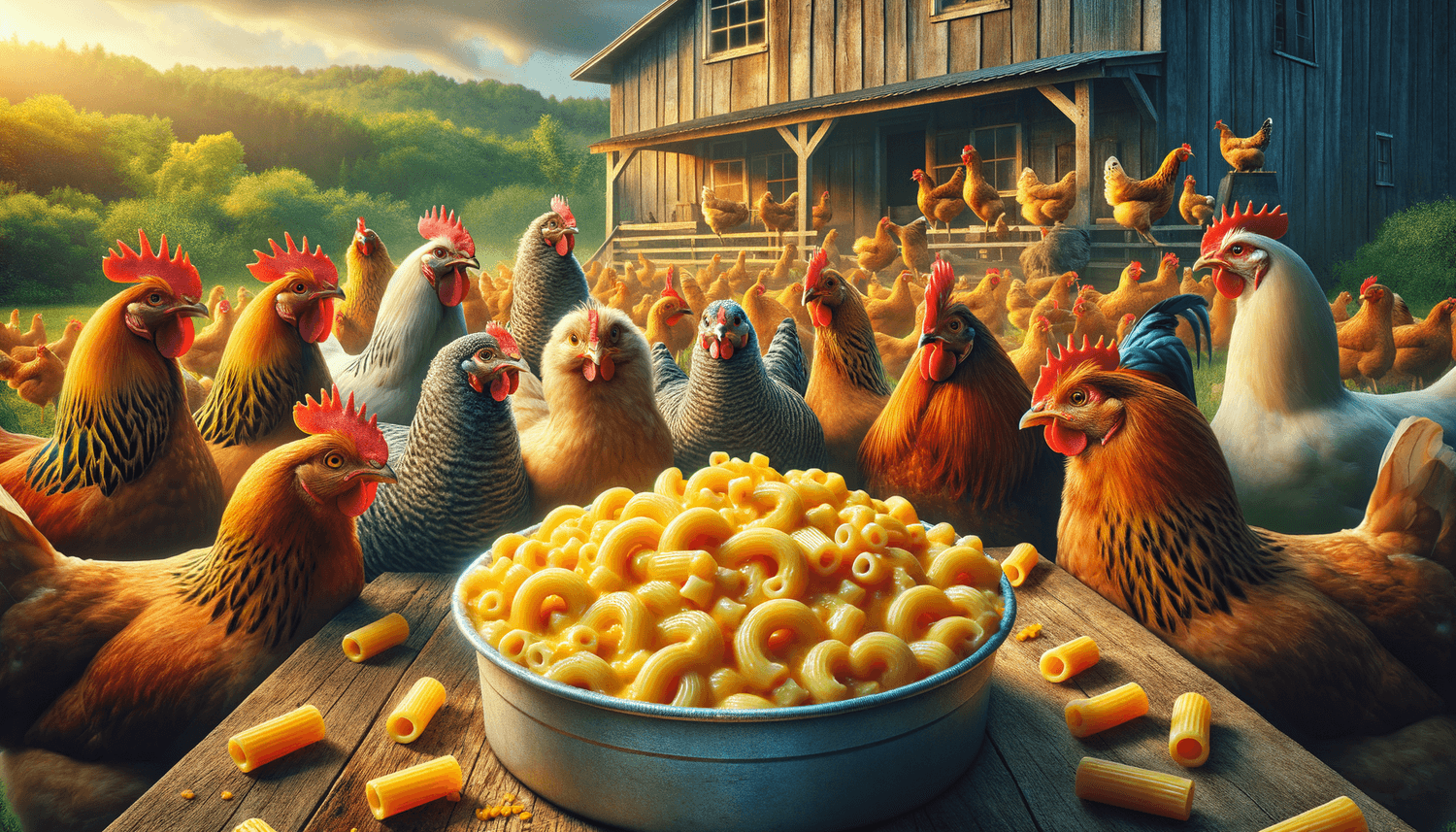Yes, chickens can eat macaroni and cheese in moderation. While the pasta itself is not harmful, the cheese sauce typically contains dairy, which is not a natural part of a chicken’s diet. Lactose tolerance in chickens is quite low, so excessive amounts could cause digestive upset.
Quick Summary
- Chickens can eat macaroni and cheese.
- It should be given in moderation due to lactose and rich sauce that might cause digestive issues.
- The dish provides carbohydrates and proteins, but also fats and possibly additives.
- Feed sparingly as a treat, not as a staple of their diet.
Overview of Macaroni and Cheese
Macaroni and cheese is a popular dish consisting of cooked macaroni pasta and a cheese sauce, often made with milk, flour, butter, and melted cheese. It’s known for its creamy texture and rich flavor. The dish provides carbohydrates from the pasta, and proteins and fats from the cheese.
Benefits and Risks of Macaroni and Cheese for Chickens
While macaroni provides energy-giving carbohydrates and cheese offers some protein, the high lactose content in the dairy-based sauce can be problematic for chickens. Other risks include high fat and salt content, and potential additives that are not suitable for a chicken’s diet.
Feeding Guidelines
Feed macaroni and cheese to chickens occasionally, and only in small quantities. It should be served as a treat alongside their regular, balanced diet. To minimize risks, it’s best to offer plain cooked macaroni without cheese to chickens instead.
Alternatives
For healthier options, consider offering chickens plain cooked whole grains, such as rice or quinoa, which are easier for them to digest. Vegetables like chopped lettuce or cooked carrot bits are also nutritious treats.
Expert Opinions
Poultry nutritionists generally recommend avoiding or minimizing dairy products in a chicken’s diet due to their low lactose tolerance. In terms of pasta, they can handle small amounts providing a source of energy but not as a substantial part of their diet. Vets advise a balanced feed designed specifically for poultry to ensure optimal health.
Frequently Asked Questions
Below are some common questions and answers about feeding macaroni and cheese to chickens after reading through the blog post.
Is it safe to feed my chickens macaroni without the cheese sauce?
Yes, plain cooked macaroni without any additives is safe for chickens to eat in moderation.
Can I feed my chickens leftover macaroni and cheese?
While small amounts as a treat are okay, leftovers with rich cheese sauce should be limited to avoid digestive issues.
How often can I give my chickens macaroni and cheese?
Macaroni and cheese should be considered an occasional treat, not a regular part of their diet; once every few weeks is sufficient.

















